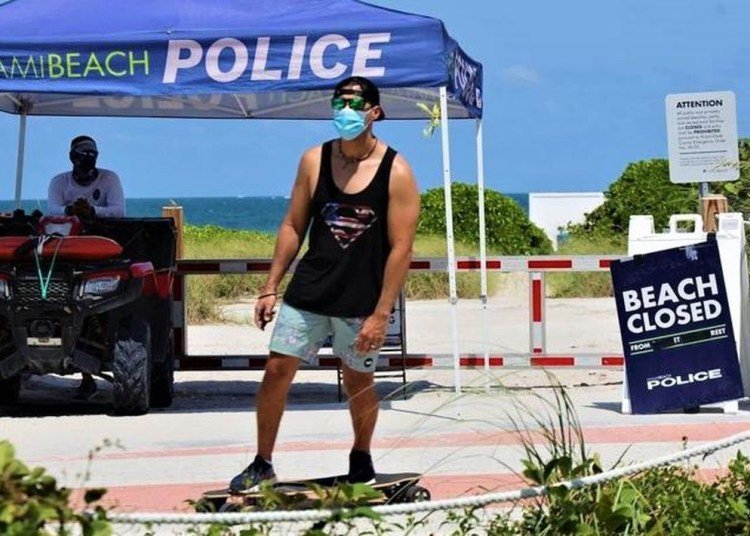South Florida, which includes Miami-Dade and Broward counties, among others, finished opening its commercial operations this Thursday despite the fact that there is no way to lower the COVID-19 pandemic expansion spiral and its victims.
The Florida Department of Health reported that there are 53,285 infected cases and 2,364 deaths; that is, an increase of 51 positive cases and 45 deaths since yesterday. In Miami-Dade County there are 17,396 positive cases with 669 deaths. This means that in the last 24 hours in South Florida, 228 positive cases were discovered and 36 patients died.
Even so, restaurants, cafes, general stores and bars reopened this Thursday. All this with some restrictions on the number of available spaces. In Miami-Dade there are some discrepancies in the way of reopening activities within the 34 cities that make up that metropolitan area.
In Miami Beach, the number of places available in restaurants is restricted to 50%. Mayor Dan Gelber has decided to partially close Ocean Drive, parallel to the beach, and Washington Avenue, to allow food establishments to expand outward to accommodate more customers.
Meanwhile, the reopening of beaches and hotels is postponed until June 1, with key restrictions: maintaining the stipulated physical distance of one and a half meters and only groups of no more than five people. The use of masks is restricted to the stay on the beach. When in the water, it isn’t necessary to wear them.
On the other hand, the mayor of the city of Miami, Francis Suárez, reported that he has decided to open restaurants, cafes and a number of public parks, including those for pets.
“Restaurants are a very important part of our economy that employs thousands of people, and we will begin to allow them to be opened carefully. [This means] that we are going to control the approved measures to protect employees and customers because COVID-19 is still present in our community,” said Suárez.
In terms of safety, the city mandated the use of protective masks among restaurant employees. Establishments must also make disinfectant available to customers and sterilize tables before receiving new guests.
A municipal official warned that the city can back down on that opening if the pandemic escalates. The Center for Disease Control (CDC) does not recommend quarantine relaxation when those affected are greater than 10% of the population. The Miami metropolitan area has 2.3 million inhabitants. The number of patients is 10.3%.










